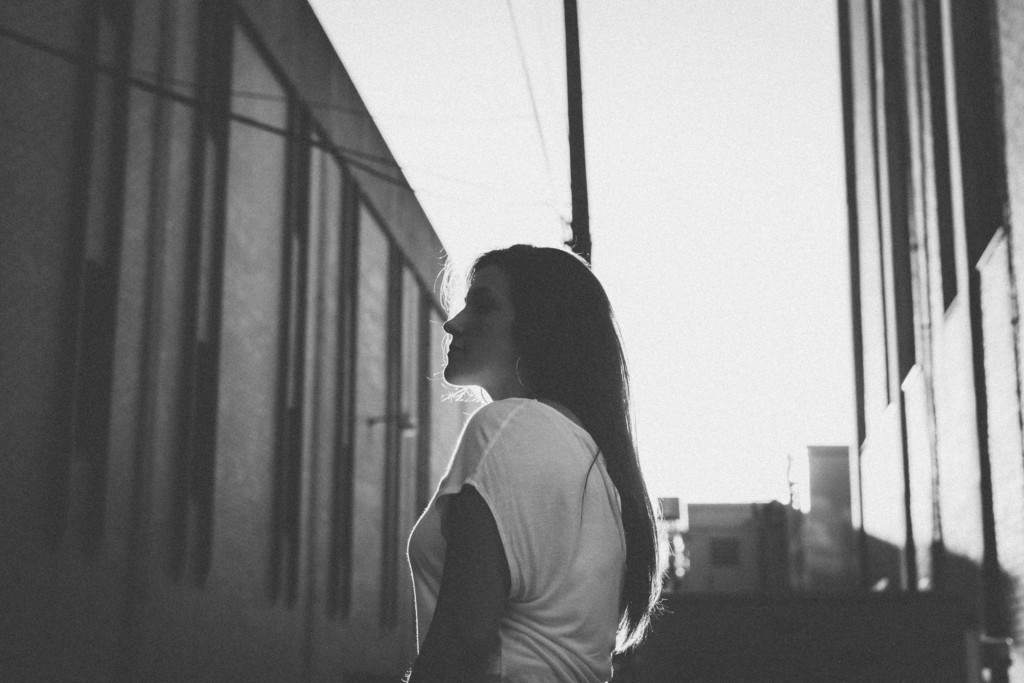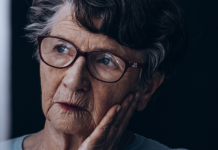When we welcomed our first child into the world, it was unlike anything else I’d ever experienced. The very minute I met my baby, my chest filled up with so much love I thought I might explode because I didn’t have enough room to hold it all in. I knew instantly that I would do anything to protect that perfect little person. After 35 hours of labor and a terrifying delivery, we were anxious and excited to bring our son home and get started on our life as a family of three.
Imagine my shock when I entered the darkest days of my life.
 We got home and settled into that eat/diaper/sleep cycle that only new parents can truly appreciate. I knew I’d be tired, but nothing prepares you for that level of exhaustion. As the days went on and I got to know my beautiful son, I felt closer and closer to him. We took our naps together, I sang to him, I stared into his bright eyes – nothing else mattered to me.
We got home and settled into that eat/diaper/sleep cycle that only new parents can truly appreciate. I knew I’d be tired, but nothing prepares you for that level of exhaustion. As the days went on and I got to know my beautiful son, I felt closer and closer to him. We took our naps together, I sang to him, I stared into his bright eyes – nothing else mattered to me.
Unfortunately, I didn’t realize that NOTHING else mattered to me. Not my loving husband, not my job, not my health…literally nothing. At the time, I didn’t know what I was experiencing, I just knew that I felt empty, lonely and full of rage. I’d heard of the “Baby Blues,” but this was a whole other animal.
It never occurred to me that anything might be wrong with me because postpartum moms want to harm their babies, right? Postpartum moms don’t feel connected to their new children, but my baby was the shining star of my life. It couldn’t possibly be postpartum depression. RIGHT?!?
At my six-week checkup, I shared the feelings of emptiness and anger that I’d been experiencing with my doctor. Without skipping a beat, she said, “Oh, you have postpartum depression.” I think I said something really eloquent like, “Um, what?”
She told me calmly and plainly that I had nothing to be ashamed of and that postpartum depression manifests itself differently in every woman. Yes, some mothers want to harm their babies – but not ALL women. In some women, it might be a lack of connection to their baby – but not for ALL women. She let me know that there was help available to me and that I shouldn’t be embarrassed to take it.
I took a minute to think about it and the thought of not feeling that way anymore filled me with a rush of relief. It was like I’d been holding my breath for a month and I finally got my first big gulp of fresh air.
I tried a few natural suggestions first, but I didn’t feel any differently after a few weeks. I made the decision to start taking an anti-depressant. Regardless of my doctor’s gentle encouragement, I was embarrassed to admit that. As a matter of fact, I can count on one hand the number of people I’ve told until now. I felt conflicted about giving up breastfeeding to take care of my mental health. I was told that the anti-depressants were safe to ingest during breastfeeding, but I wasn’t willing to try it. So, guilt about using formula set in. I felt like I’d failed at motherhood before I even got started. I hadn’t, of course, but that was the state of my depression.
Eventually, the anti-depressants kicked in and I began to feel like my old self. It was a welcome change to feel ANYTHING!
In hindsight, I realize that my hangups about admitting to my postpartum depression diagnosis were stupid. As were my feelings of guilt and shame. I see things online from women who shame other women for using formula to feed their kids, but I’m not sorry for how I handled any of it. I took excellent care of my baby. He was always fed, warm, loved and nurtured. I’d do it again the exact same way, if I had to.
I understand now that by taking care of my mental health, it allowed me to be a better mom than I was being. It absolutely saved my marriage. I fought hard for the well-being of my family unit and even though it wasn’t my picture perfect idea of how I’d start my time as a mother, I’m glad it happened.
I learned that every mom’s experience is different. I learned that postpartum depression is a very real thing. Most importantly, it taught me that taking care of my mental health wasn’t something to be ashamed of; it was something that was crucial to my survival.
If you think you’re experiencing symptoms of postpartum depression, don’t be afraid to reach out for help. You are not a failure or a freak. It happens. Medicine might not be the right path for you, but even if it is, don’t feel one ounce of guilt over it. You’re trying hard to be a good mom and at the end of the day, isn’t that really what all of us are doing?











